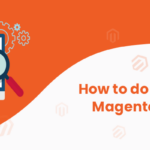
Tips for Magento e-Commerce SEO, we are happy to help you with these tips and tricks for e-commerce SEO that you can apply for your Magento store right away! As an e-Commerce business owner, you understand the importance of Search Engine Optimization (SEO) for your website. SEO is the process of optimising your website to rank higher on search engine results pages (SERPs) and attract more organic traffic.
Magento is a highly dependable CMS for online stores, offering a wealth of functionality and extensive customization options. With over 250,000 merchants worldwide utilizing Magento as their e-commerce platform, it is clear that it has become a preferred choice for retailers and entrepreneurs. Furthermore, statistics show that businesses that use Magento tend to grow at a rate three times faster on average. This growth factor is one of the primary reasons why many world-renowned brands such as American Express, Ford, Puma, Xerox, and Coca-Cola prefer Magento for their businesses.
In this article, we will discuss some essential SEO tips for your website that will help you improve your website’s visibility on SERPs and attract more potential customers.

Tips for Magento e-Commerce SEO
The success of an online store hinges on its Magento SEO performance. The better optimized your website is for Magento SEO, the higher the chances of customers accessing your products or services, thereby increasing brand reach.
However, optimizing Magento SEO is never an easy task, especially when dealing with an eCommerce website that features numerous product lists.
The symbiotic relationship between Magento and SEO is evident in how default Magento features support merchants in improving their businesses. This is one of the reasons why Magento 2 has become a popular eCommerce website platform, thanks to its Magento SEO features such as URL rewriting, image optimization, and Google Sitemap.
Tip 1: Optimize Your Product Pages
Product pages are the heart of any e-Commerce website.
They are the ones that display your products and convince customers to make a purchase.
Therefore, it is crucial to optimize your product pages for SEO. Make sure you include relevant keywords in the product titles, descriptions, and meta tags.
Use high-quality images and videos to showcase your products and provide a detailed description that highlights the features and benefits of the product.
Tip 2: Use Relevant Keywords
Keywords play a significant role in SEO.
They are the phrases or words that users type into search engines to find products or services. Therefore, it is essential to conduct keyword research to identify relevant and high-traffic keywords that your target audience is using.
Use these keywords throughout your website, including product pages, category pages, and meta tags.
However, avoid keyword stuffing, as it can negatively affect your website’s ranking.
Tip 3: Optimize Your Site Structure
The structure of your website plays a significant role in SEO. A well-structured website makes it easier for search engines to crawl and index your pages, resulting in higher rankings.
Make sure you use a simple and logical hierarchy for your website, starting with the homepage, followed by category pages, and then product pages.
Use breadcrumb navigation to make it easier for users to navigate your website and find the products they are looking for.
Tip 4: Speed Up Your Website
Website speed is a crucial factor in SEO.
A slow-loading website can negatively affect your rankings and drive potential customers away.
Therefore, it is essential to optimize your website’s speed by compressing images, using a content delivery network (CDN), and minimizing HTTP requests.
Magento e-Commerce websites can be slow due to their complex structure, but there are ways to improve speed, such as using caching and optimizing code.
Tip 5: Use Schema Markup
Schema markup is a type of code that helps search engines understand the content of your website better.
It provides additional information about your products, such as reviews, ratings, and pricing, which can appear on SERPs as rich snippets.
This can increase your website’s visibility and attract more potential customers.
Magento e-Commerce websites can use schema markup to enhance their product pages and improve their SEO.
Tip 6: Use AYSA.AI for SEO Automation
SEO can be a time-consuming and challenging task, especially for e-Commerce websites with hundreds or thousands of products.
That’s where AYSA.AI comes in. AYSA.AI is an SEO automation software designed for the e-Commerce industry.
It can help you automate your SEO tasks, such as keyword research, on-page optimization, and content creation.
With AYSA.AI, you can save time and focus on other aspects of your business while improving your website’s SEO.
In conclusion, SEO is essential for Magento e-Commerce websites to attract more organic traffic and increase sales.
By following these tips, you can optimize your website for SEO and improve your rankings on SERPs.
Additionally, using AYSA.AI can help you automate your SEO tasks and save time.
Therefore, AYSA.AI is the best choice for e-Commerce businesses looking to improve their SEO. Start optimizing your website today and see the results
Happy with these tips? Read some more of our articles on the subject of SEO:
Podcast with Bojan Maric, Director of SEO for Content Distribution
How to Add Google Analytics to Your e-Commerce Site: A Comprehensive Guide
Adverlink Ahrefs artificial intelligence automation automation tools aysa.ai aysa.ai seo magento 2 backlink analysis backlinks Competitor Analysis content Content optimization digital marketing E-commerce e-commerce industry e-commerce seo ecommerce ecommerce seo google Google Analytics Google Keyword Planner Google Search Console Keyword research keywords link building machine learning magento 2 Moz Pro on-page optimization online presence organic traffic search engine optimization search engine rankings search engines SEMrush seo seo automation SEO Automation Software SEO Tools technical SEO traffic user-friendly interface visibility website performance website traffic


